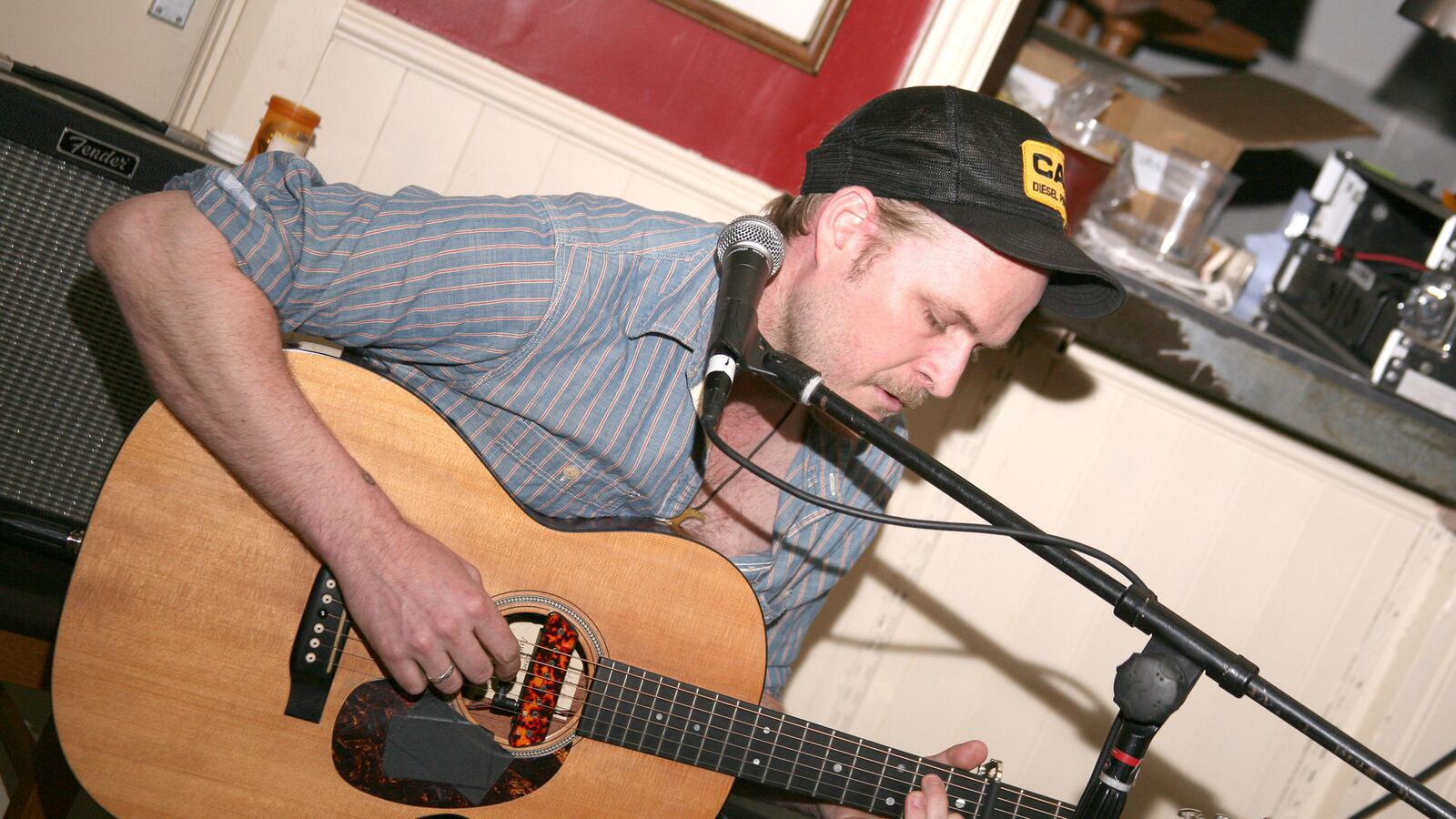The stage is empty and dark. One by one the musicians enter, darkened shapes and footfalls. A man stands in the middle by himself, calling out to the shadows, "Hey my brother, don't you know the road?" His comrades answer confidently, "Yes, my brother I know the road." The singer, shakes his head, refuses to accept their assurances, and asks again. Again he is told "I know the road." This goes on for nearly ten minutes; guitars begin to squall and prod insistently, but the singer remains unwilling to take yes for an answer. The road remains unknowable.
Some music is certain. Beck's new album is sad. Pharrell's is happy. Beyonce's is sexy.
Uncertainty is rarer. The Joshua Tree, before Bono had found what he was looking for, was a collection of question marks. Some gospel music, like Blind Willie Johnson's, chronicles an indeterminate journey to an unknown destination.
Mike Taylor, aka Hiss Golden Messenger, makes deeply searching music; each song a battle with questions of faith, and love, and responsibility. He sets this exploration to a rich brew of country, folk, and gospel that draw upon the deepest traditions of American music.
Taylor has been making music for a long time, but Hiss Golden Messenger is relatively new -- established when Taylor relocated from San Francisco to North Carolina. The name is "an enigma even to me," Taylor says -- an appropriately mysterious moniker to make spiritual music under.
In the Bay Area, Taylor sang in the Byrds-like Court and Spark. He left the band, and the West Coast, to find his own voice.
In North Carolina, Taylor trained as a folklorist. He was employed by the state to record and collect folk music. He travelled the state and listened deeply.
"Traditional American music is very important to me," Taylor says. "The question is how do you take the lessons that you have learned from that music, internalize it, and put it in the service of songs that are genuine and don't sound like Civil War re-enacting?"
After the birth of his son, Taylor began recording deeply personal songs into a portable recorder while his boy slept in the other room.
The music was not intended for release. "I was exhausted and kind of lost," Taylor says. "I did not think the music I was making had a future."
Taylor was finally persuaded in 2010 to self-release an album -- Bad Debt -- of his starkly introspective acoustic compositions. He pressed 100 copies, sold them all, and pressed another 100. When those also quickly sold, he knew he had touched a nerve.
"A lot of us have more questions than answers. I do," Taylor says. "I want a reason to believe. I want to understand the transaction that is required to have a comfortable relationship with faith."
Poor Moon and Haw followed in 2011 and 2013. On them Taylor filled out his skeletal compositions with fuller arrangements; a crackerjack band led by longtime collaborator Scott Hirsch amplified his hushed confessions with country picking, rock licks, and even the occasional brass and strings. The albums are among this decade's best.The songs are filled with stories of tempting serpents and wandering men. The higher power has many names -- daylight, conqueror, monarch. Grace is not assured, and if it comes at all it can feel like a shot to the head. Faith is often its own -- and only -- reward.Taylor is working on a new album, but still has his day job and tours only sporadically. He is playing at New York's Mercury Lounge this evening. Don't miss him.






